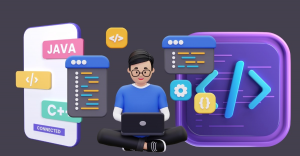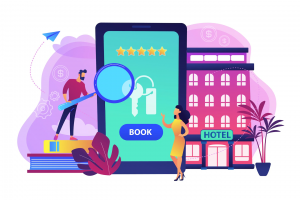Key Takeaways
- AI is streamlining recruitment by automating administrative tasks and improving candidate matching.
- The adoption of AI in recruitment processes is rapidly increasing, driven by a need for efficiency and better hiring outcomes.
- While AI can reduce bias and enhance diversity, it also introduces new ethical and data privacy challenges.
- Real-world applications demonstrate dramatic improvements in both candidate experience and recruiter productivity.
- Balancing automation with a human touch is critical for long-term recruitment success.
Table of Contents
- Introduction
- The Rise of AI in Recruitment
- Key Benefits of AI in Talent Sourcing
- Real-World Applications
- Challenges and Considerations
- Future Outlook
- Conclusion
Introduction
With businesses vying for the best talent in an increasingly competitive labor market, advanced technology is now a cornerstone of successful recruitment. Artificial intelligence (AI) is reshaping how organizations approach candidate selection, screening, and hiring, signaling a departure from traditional, time-intensive practices. In the evolving landscape of artificial intelligence in recruitment, companies are leveraging machine learning and data analytics to optimize every step of the recruitment process. AI solutions are automating repetitive administrative tasks, enabling HR teams to focus on engaging with candidates and building relationships. As job seekers expect a seamless, personalized experience, AI-driven recruitment creates efficient pipelines for both employers and applicants, redefining the benchmarks for talent acquisition success.
The Rise of AI in Recruitment
The integration of AI into recruitment is growing rapidly. According to a 2025 industry study, 43% of organizations are using AI for HR tasks, a substantial increase from just 26% in 2024. This surge is fueled by a need to streamline hiring, access deeper candidate insights, and respond to the dynamic needs of the modern workforce. As organizations handle larger volumes of applications and tighter deadlines, the adoption of sophisticated technology sets a new standard for recruiting efficiency and accuracy, and, according to SHRM.org, this shift is becoming a defining feature of modern HR practices.
Such momentum is projected to continue as businesses gain confidence in AI-powered recruitment platforms' ability to deliver faster, more precise results. This evolution not only accelerates hiring timelines but also fosters better matches between employers and candidates, facilitating high-quality workforce development.
Key Benefits of AI in Talent Sourcing
- Enhanced Efficiency: Advanced AI algorithms quickly analyze massive datasets, freeing recruiters from hours of manual shortlisting. This speed allows hiring teams to concentrate on interviewing and relationship-building rather than paperwork.
- Improved Candidate Matching: By analyzing qualifications, experience, and even soft skills, AI technology matches candidates to roles with outstanding precision, improving retention rates and organizational fit.
- Bias Reduction: When properly configured, AI tools can reduce unconscious human bias, focusing decisions on skills and relevant attributes to promote a more diverse and equitable workforce.
These advantages reflect a broader trend in which automation and analytical insights are reshaping talent pipelines. Companies are increasingly able to identify talent pools that might have been overlooked in traditional processes, further expanding diversity and inclusion opportunities.
Challenges and Considerations
Despite their transformative potential, AI-driven recruitment platforms are not without challenges. One primary concern is data privacy—employers must rigorously protect candidate information and remain compliant with evolving regulations. Additionally, while AI can help minimize human bias, poorly designed models may unintentionally amplify existing biases in datasets. Human oversight is essential to monitor AI outputs, ensure fairness, and maintain an ethical approach to hiring decisions.
Moreover, candidates may have reservations about fully automated processes. To maintain a positive experience, organizations should strive for transparency in their AI use and ensure that human interaction remains central to the hiring journey.
Future Outlook
The future of recruitment is poised for even greater transformation as AI evolves. Emerging advancements include candidate rediscovery tools that tap into existing talent networks, automated skill assessments, and sophisticated natural language processing engines to parse both resumes and interviews. As AI systems become more intuitive, recruiters will have an expanding array of tools for talent sourcing, evaluation, and nurturing long-term candidate relationships.
This ongoing innovation positions forward-thinking organizations to stay ahead of the competition—leveraging automation to drive speed and scale without sacrificing personalization or human engagement. Recruitment teams embracing these developments will be primed to attract exceptional talent more efficiently and effectively than ever before.
Conclusion
The integration of AI into recruitment processes is no longer just an option—it is rapidly becoming a necessity for businesses focused on agility, accuracy, and long-term growth. By automating routine tasks, enhancing candidate evaluation, and underpinning more equitable hiring, AI is transforming how companies find and retain top talent. The key to ongoing success lies in combining these technologies with human-centered strategies, ensuring an efficient, ethical, and engaging recruitment process for all participants.






